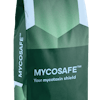
White Dog Labs signs deal to supply Cargill with its single-cell protein product.
White Dog Labs does not make fishmeal replacements.
It doesn’t make antibiotic alternatives, and it doesn’t tell stories about food waste and sustainability to command premium prices. And CEO Bryan Tracy has even less time for buzzwords these days, now that his company has signed a deal to supply Cargill with tens of thousands of tons of ProTyton, the startup’s single-cell protein product, as early as next year.
Tracy’s pragmatic approach — Cargill used the word “professional” — has set White Dog Labs apart from its competition in the novel feed ingredients space, drawing attention from Cargill’s aqua nutrition branch, which hopes to begin integrating ProTyton into Cargill’s salmon offerings in the near future.
White Dog Labs has “a solid management team that has been taking the correct steps in bringing a new feed ingredient to the marketplace,” Jeff Kazin, director of risk management and sourcing for Cargill’s aqua nutrition business, said in an email. “We look forward to working with White Dog Labs as they take on the inevitable challenge of bringing new technology to market.”
Other species will be targeted in the future
Cargill may be interested in salmon feed, but Tracy doesn’t plan to stop there. The company initially focused on trials in salmon and trout due to the availability of nutrition research on those species. They’re also running trials in species such as white leg shrimp and Hamachi, or Pacific yellowtail, which is popular in Japan. In the future, pigs, pets and even humans are on the list of potential target species.
“We don’t market as a fishmeal replacement, because we don’t make fishmeal,” Tracy said. “Instead we focus on producing a product that has a very, very high protein content. If we brought five new things into a diet, it’s challenging to say that all five things are in balance in the diet. By focusing on protein, we allow greater flexibility.”
And by focusing on resources that are already available, White Dog Labs hopes to allow greater economic flexibility as well. White Dog Labs uses existing infrastructure to produce ProTyton. The company’s production facilities are retired ethanol plants; they use existing, widely available starches — corn, tapioca, sugar cane or gluten — to feed the organisms that form the basis of their products.
“We’re using age-old technology to produce these products, because bring a product to market is challenging,” Tracy said. “If you couple that with additional new technologies, it’s even harder to bring a product to market.”
The company also plans to extract multiple products from a single process to keep costs in line with industry norms. MiruTyton, a co-product of ProTyton, is a liquid feed additive that improves gut health, promotes growth and reduces the need for antibiotics — and is not an antibiotic alternative, Tracy said.
Key to sustainability
The focus on economics isn’t to suggest that Tracy isn’t interested in sustainability. But finding the right price point, he believes, is the true key to sustainability in the feed industry.
“New customers are looking for greater sustainability,” Tracy said, “but that’s a formidable challenge if sustainability commands a premium price.”
White Dog Labs’ products are sustainable, Tracy said, because they use existing agricultural inputs and don’t put additional stress on wild fisheries or uncleared land. Single-cell protein, he said, is the much coveted plant-based protein. “We’re just using bacteria as a middle man.”















